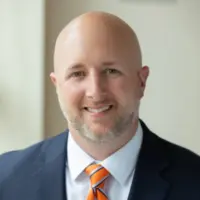About Sheppard Pratt Outpatient Mental Health Center – Patrick
Behavioral Health Partners of Frederick in Frederick, Maryland provides outpatient treatment to individuals like yourself who require assistance with overcoming drug and alcohol addiction. At this center, adolescents, teenagers, young adults and adults can seek help from staff that includes nurse practitioners, board certified psychiatrists, licensed counselors and social workers.
The center is renowned for its warm and inviting atmosphere as well as its patient centered approach to care. The facility is conveniently located near the city’s historic downtown area, parks, and community resources that can support healing and integrated care.
Extensive Clinic Based Care for All Age Groups
Sometimes, overcoming drug and alcohol addiction can be too difficult without medication assistance. At this center, extensive clinic based services are available to support individuals in overcoming this challenge.
When you enroll, you’ll have access to therapeutic and medication management services, including counseling and various medicines known to help rather than harm recovery. It’s also worth mentioning that this center is equipped to handle those with co occurring mental health conditions, including those with bipolar disorder and schizophrenia.
Convenient Off Site Counseling
Not every individual has the time or the resources to attend on site counseling when battling addiction or a dual diagnosis. Fortunately, the Behavioral Health Partners of Frederick Center provides off site counseling for high risk adolescents and children.
With this service, licensed counselors and social workers visit your home or your child’s school, offering individual and family therapy that many say has been beneficial to them. However, it’s essential to note that private insurance does not cover these off site sessions.
Also, if your child requires school based counseling, you’ll love that counselors will have the ability to fully tailor treatment. By counseling at your child’s school, they will have access to attendance records and grades, and will communicate closely with teachers. Counselors can use the information gleaned from these avenues to put together a treatment plan that your child will likely find worthwhile during their sobriety journey.
Compassion Driven Evidence Based Therapy
When you attend a behavioral health center for mental health and addiction concerns, it’s essential to receive the care you deserve. This means your treatment should be compassionate, proven to be effective, and safe. When you attend the outpatient treatment program at the Behavioral Health Partners of Frederick Center, you can be assured of this.
At this center, you’ll be treated kindly, with staff members emphasizing respect and dignity in their care. Some of the evidence based therapies you can expect in your treatment sessions include cognitive behavioral therapy, group therapy, trauma therapy and family and couples therapy.
Rehab Score
Other Forms of Payment
Medicaid is a state based program that helps lower-income individuals and families pay for healthcare. Medicaid covers addiction treatment so those enrolled can use their coverage to pay for rehab. When a program accepts Medicaid the client often pays very little or nothing out of their own pocket.
Medicare is a federal program that provides health insurance for those 65 and older. It also serves people under 65 with chronic and disabling health challenges. To use Medicare for addiction treatment you need to find a program that accepts Medicare and is in network with your plan. Out of pocket costs and preauthorization requirements vary, so always check with your provider.
Self-pay involves paying for treatment out of your own pocket. You can use savings or credit, get a personal loan, or receive help from family and friends to fund your treatment. If you don't have insurance or your insurance plan doesn't cover a specific program, self-pay can help ensure you still get the care you need.
Private insurance refers to any kind of healthcare coverage that isn't from the state or federal government. This includes individual and family plans offered by an employer or purchased from the Insurance Marketplace. Every plan will have different requirements and out of pocket costs so be sure to get the full details before you start treatment.
Addiction Treatments
Levels of Care
Intensive Outpatient Programs (IOP) are for those who want or need a very structured treatment program but who also wish to live at home and continue with certain responsibilities (such as work or school). IOP substance abuse treatment programs vary in duration and intensity, and certain outpatient rehab centers will offer individualized treatment programs.
Outpatient Programs (OP) are for those seeking mental rehab or drug rehab, but who also stay at home every night. The main difference between outpatient treatment (OP) and intensive outpatient treatment (IOP) lies in the amount of hours the patient spends at the facility. Most of the time an outpatient program is designed for someone who has completed an inpatient stay and is looking to continue their growth in recovery. Outpatient is not meant to be the starting point, it is commonly referred to as aftercare.
Treatments
Mental health rehabs focus on helping individuals recover from mental illnesses like bipolar disorder, clinical depression, anxiety disorders, schizophrenia, and more. Mental health professionals at these facilities are trained to understand and treat mental health issues, both in individual and group settings.
Programs
Adult rehab programs include therapies tailored to each client's specific needs, goals, and recovery progress. They are tailored to the specific challenges adult clients may face, including family and work pressures and commitments. From inpatient and residential treatment to various levels of outpatient services, there are many options available. Some facilities also help adults work through co-occurring conditions, like anxiety, that can accompany addiction.
Young adulthood can be an exciting, yet difficult, time of transition. Individuals in their late teens to mid-20s face unique stressors related to school, jobs, families, and social circles, which can lead to a rise in substance use. Rehab centers with dedicated young adult programs will include activities and amenities that cater to this age group, with an emphasis on specialized counseling, peer socialization, and ongoing aftercare.
Clinical Services
Whether a marriage or other committed relationship, an intimate partnership is one of the most important aspects of a person's life. Drug and alcohol addiction affects both members of a couple in deep and meaningful ways, as does rehab and recovery. Couples therapy and other couples-focused treatment programs are significant parts of exploring triggers of addiction, as well as learning how to build healthy patterns to support ongoing sobriety.
Research clearly demonstrates that recovery is far more successful and sustainable when loved ones like family members participate in rehab and substance abuse treatment. Genetic factors may be at play when it comes to drug and alcohol addiction, as well as mental health issues. Family dynamics often play a critical role in addiction triggers, and if properly educated, family members can be a strong source of support when it comes to rehabilitation.
Group therapy is any therapeutic work that happens in a group (not one-on-one). There are a number of different group therapy modalities, including support groups, experiential therapy, psycho-education, and more. Group therapy involves treatment as well as processing interaction between group members.
In individual therapy, a patient meets one-on-one with a trained psychologist or counselor. Therapy is a pivotal part of effective substance abuse treatment, as it often covers root causes of addiction, including challenges faced by the patient in their social, family, and work/school life.
Recreational therapy (aka therapeutic recreation) uses creative and fun activities to help with addiction recovery. Recreational therapists lead patients in entertaining and engaging activities like sports or games; art (drawing, painting, sculpture); drama, music, and dance; and/or community outings (field trips) to improve patients' physical, social, and emotional well-being.
Amenities
-
Private Setting
Staff

Harsh K. Trivedi, MD, MBA
President & CEO

Jennifer Coyne, JD
General Counsel

Kathy Flannery, MEd
VP & Chief of Schools

Gregory Gattman, FACHE
VP & COO

Jeffrey Grossi, JD
Chief of Government Relations

Thomas D. Hess, MBA, MEd
Chief of Staff

Claudia Keenan
VP & Chief Development Officer

Todd Peters, MD
Senior VP & Chief Medical Officer
Contact Information
210 Abrecht Place
Frederick, MD 21701